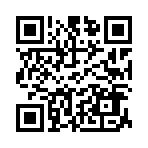Philosophy and Technology (Springer), Editor in Chief Luciano Floridi (Oxford)
Call for Papers for a special issue on 20 Years of ETHICOMP: A Celebration
GUEST EDITORS
Charles Ess, Bernd Carsten Stahl
INTRODUCTION
The ETHICOMP conference series began in 1995. In 1995 the World Wide Web was a new phenomenon unheard of by most people. It was a time of initial experimentation with electronic government and electronic commerce. The dominant computing paradigm was still focused on mainframes, with networked machines starting to gain prominence. Personal computers existed but were expensive. Mobile telephones were the preserve of well-paid executives. Increasingly, however, the emerging characteristics and growing social consequences of computing technologies evoked and required ethical reflection. It was in this context that Simon Rogerson and Terry Bynum had the vision of organizing the first ETHICOMP conference in 1995 (Leicester, UK).
Technologies, their organisational, individual and social use and the resulting social and ethical consequences have developed rapidly. Information and Communication Technologies (ICTs) are now converging and diffusing into an ever-increasing number of social domains. ETHICOMP remains one of the main venues for the exchange of ideas about ethics and ICTs. Among the defining features of ETHICOMP are the explicit attempts to bring together people from different backgrounds from within and outside of academia with a strong interest in practice and policy. The ETHICOMP conference series furthermore prides itself in being inclusive, supportive and providing a friendly environment for new entrants in the discussion to voice their ideas. These distinctive characteristics of the conference series are due first of all to the vision and labour of its two leading figures, Terry and Simon.
During the nearly two decades of its existence, the conference has branched out from being a local event in Leicester to spanning several continents with the events occurring in places as diverse as China, Japan and South America.
Recently, Terry and Simon have stepped down as chairs and leaders of the ETHICOMP conference series and have handed over the responsibility to the next generation of scholars. This special issue celebrates the achievements of the ETHICOMP conference series, of the two individuals who have steered it, and the community of researchers, scholars and practitioners who have discovered and helped shape it as a place to develop their understanding and thinking.
TOPICS
In this special issue we want to look back on the discourse that has developed within and around ETHICOMP. This special issue will be linked to a dedicated track of the 2014 ETHICOMP / CEPE conference. Potential authors are encouraged to submit an extended abstract to the 2014 ETHICOMP track. The track will allow potential authors to develop their ideas further.
Possible topics include:
- · Technological changes and resulting ethical challenges
- · Themes of ethical discussion in ICT since 1995, both within and beyond ETHICOMP
- · Relationships of different scholarly and disciplinary communities (e.g. computer science, software engineering, philosophy, science and technology studies, information systems) and conferences (e.g., CAP, ECAP, IACAP, CEPE, and of course, ETHICOMP) in ethics and ICT
- · Personal insights, accounts or viewpoints that demonstrate the relevance of ETHICOMP and its two founders – e.g., Terry Bynum’s focus on “flourishing ethics” as rooted in the work of Norbert Wiener, Simon Rogerston’s attention to ways in which professional practice can become relevant in the ICT industry.
- · Historical, bibliometric or other analyses of ETHICOMP content
- · Likely topics of ETHICOMP conferences in 2035, i.e., what might current patterns of research topics and anticipated technological developments suggest as future directions for research and critical reflection?
TIMETABLE
30.11.2013 Submission of extended abstracts to ETHICOMP 2014 (recommended)
25-27.06.2014 2014 ETHICOMP, in conjunction with CEPE
01.08.2014 Submission online of full paper to the journal (see instructions below)
31.10.2014 Deadline for peer-reviewed, double-blind evaluations
15.11.2014 Editorial feedback to authors
01.02.2015 Submission of revised papers
31.03.2015 Final editorial decision
June 2015 Publication of the special issue
SUBMISSION DETAILS
To submit a paper for this special issue, authors should go to the journal’s Editorial Manager (EM) http://www.editorialmanager.com/phte/
The author (or a corresponding author for each submission in case of co- authored papers) must register into EM.
The author must then select the special article type: “20 Years of ETHICOMP: A Celebration” from the selection provided in the submission process. This is needed in order to assign the submissions to the Guest Editors.
For any further information please contact:
Stahl, Bernd Carsten bstahl@dmu.ac.uk
Ess, Charles c.m.ess@media.uio.no



 Posted by greatemancipator
Posted by greatemancipator 
